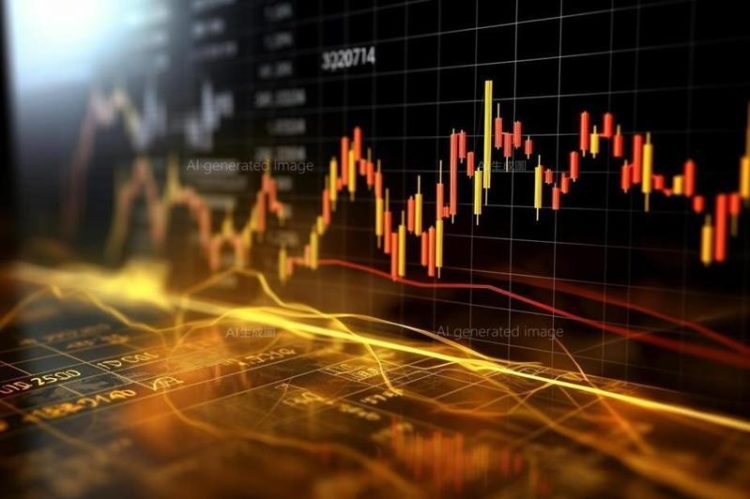The U.S. stock market has long been a crucial barometer for the global economy, and its movements often send ripples across the world. Yet, the past decade has shown increasing volatility, leaving many investors and analysts asking: why does the market keep swinging up and down so dramatically? From sharp price fluctuations to sudden market crashes, understanding what drives these changes is vital for anyone involved in investing or following the economy. In this article, we’ll dive deep into the core reasons behind the U.S. stock market’s constant volatility, exploring both short-term triggers and long-term underlying factors.
1. Economic Shifts: Growth, Recessions, and Everything In Between
The stock market is incredibly sensitive to the state of the economy, so it’s no surprise that shifts in economic conditions are a major cause of volatility.
Economic Cycles: Expansion and Contraction
The market tends to reflect the broader economic cycle, moving up during times of growth and often experiencing downturns when the economy shrinks. For example, periods of economic expansion usually lead to higher corporate profits, which drive stock prices up. However, when recessions hit, these profits drop, causing stock prices to fall in tandem.
Interest Rates and Inflation
The Federal Reserve plays a crucial role in determining the market’s stability. Its decisions on interest rates have a direct impact on investor behavior. When the Fed raises interest rates, borrowing becomes more expensive, which can slow down economic growth and hurt stock prices. On the flip side, when rates are lowered to stimulate the economy, it often boosts investor confidence—until inflation begins to rise, causing concerns about potential overheat.
2. Global Events: The World’s Impact on U.S. Markets
The U.S. market doesn’t operate in isolation. Global events—whether geopolitical tensions, international trade issues, or unexpected crises—can set off a chain reaction, leading to market instability.
Trade Wars and Global Tensions
Take the U.S.-China trade war as an example: the tariffs, retaliatory measures, and uncertainty about future deals caused major fluctuations in the market. Similarly, geopolitical instability—whether in the Middle East or Europe—can cause uncertainty, leading investors to become more risk-averse.
Crisis Events
Unpredictable global crises, like the COVID-19 pandemic, are another source of major volatility. The pandemic caused an economic freeze, followed by sharp recoveries as vaccines were rolled out. The market bounced wildly in response to changing lockdown rules, government stimulus programs, and economic shutdowns.
3. Investor Psychology: The Power of Emotion
Investor sentiment plays a critical role in market swings. Often, the market is driven more by human emotion than by actual economic fundamentals.
Fear and Greed
In times of uncertainty, fear can cause investors to sell off their holdings quickly, leading to sharp market declines. This is known as panic selling. On the other hand, periods of excitement or hype can create speculative bubbles, where investors buy stocks purely based on optimism, ignoring the actual value of the companies behind them.
Herd Mentality
People are often influenced by the actions of others, leading to herd behavior. This can amplify both market booms and busts. When everyone is buying into a stock or sector, it can drive prices up rapidly—only to crash when the market realizes it’s been overly speculative.
4. Technological Influence: The Role of Algorithms and Speed
In the modern age, the stock market is increasingly influenced by technology, particularly through high-frequency trading and algorithmic strategies.
High-Frequency Trading (HFT)
HFT uses algorithms to execute a large number of trades in fractions of a second. While it can increase liquidity, it can also contribute to volatility, as these rapid trades can cause market prices to swing wildly. A single major trade or a sudden shift in algorithmic strategies can cause significant price changes in a matter of moments.
Tech Innovations and Stock Volatility
The rise of tech companies, particularly big names like Apple, Amazon, and Tesla, has also influenced the market. These companies are often valued highly, and any slight change in their performance or public perception can lead to big price swings. As the tech sector continues to grow, its volatility becomes more pronounced, pulling the broader market along with it.

5. Speculation and Bubbles: When Markets Get Overheated
Speculation is a major contributor to stock market volatility. Investors often bet on future success, driving up stock prices regardless of a company’s actual performance.
The Dot-Com Bubble and Other Speculative Periods
Looking back at the dot-com bubble in the late ‘90s, investors poured money into tech stocks without regard to whether these companies were profitable. Eventually, reality set in, and the bubble burst, causing a massive market collapse. Similarly, the housing bubble in the mid-2000s was driven by speculation, leading to the 2008 financial crisis.
6. Political and Regulatory Factors: The Impact of Government Decisions
Government actions, whether domestic or foreign, can create uncertainty or stability in the markets.
Political Uncertainty
Election years often bring heightened volatility, as investors adjust their portfolios based on the political climate. For instance, shifts in policies related to taxes, healthcare, or international relations can significantly affect stock market performance.
Regulatory Changes
Changes in financial regulations can have wide-ranging effects. Deregulation in certain sectors can lead to more risk-taking and volatility, while over-regulation can stifle growth, causing uncertainty. The market reacts swiftly to news regarding government policies, particularly when those policies might directly impact corporate profits.
7. The Future: Can We Expect More Stability or More Volatility?
So, what does the future hold for the U.S. stock market? Will it become less volatile, or are we in for more swings?
The Role of Innovation
As new industries emerge—such as electric vehicles, renewable energy, and artificial intelligence—the market will likely continue to experience volatility as investors speculate on these areas. Similarly, the rise of cryptocurrencies and decentralized finance (DeFi) adds another layer of unpredictability.
Global Interconnectedness
The more connected the global economy becomes, the more susceptible U.S. markets are to external shocks. As trade, finance, and communication networks grow, so too does the likelihood that events outside the U.S. will ripple through the stock market.
Conclusion: Navigating Volatility in the U.S. Stock Market
The U.S. stock market is inherently volatile, influenced by a mix of economic factors, investor sentiment, technological developments, and geopolitical events. While volatility can present challenges for investors, it also offers opportunities for those who can navigate it wisely.
Ultimately, understanding the forces behind stock market fluctuations is key to managing risk and making informed investment decisions. As the market continues to evolve, staying adaptable and informed will be the best strategy to weather the storm of volatility. Whether you’re a short-term trader or a long-term investor, keeping a clear perspective on the underlying reasons for market movements will help you make smarter decisions in the face of uncertainty.



































